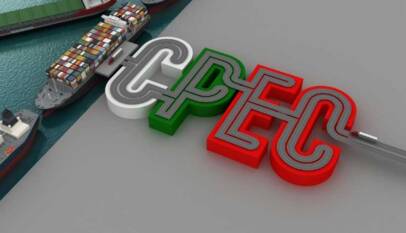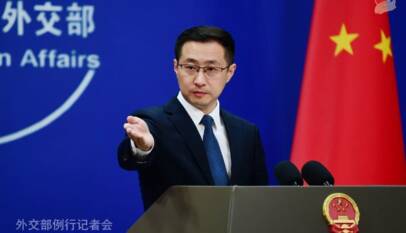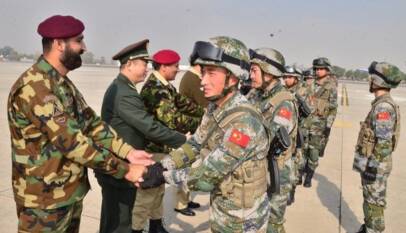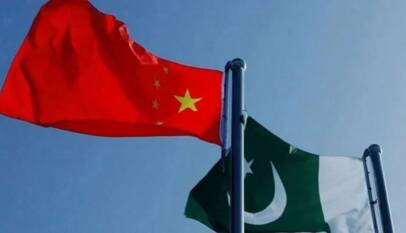CPEC: an engine of sustainable economic growth in the midst of COVID-19
For many reasons, China is being considered as a saviour of the deteriorating global economy amid the outbreak of COVID-19. With strong financial, scientific and technical capability, gigantic manufacturing support, China has set a precedent in the fight against COVID-19. By providing anti-epidemic medical assistance to over 100 countries and international organizations, China emerged as a global leader in effectively handling the COVID-19.
China’s Belt and Road Initiative (BRI) plays a significant role to revive and support global economic growth amid pandemic. China Pakistan Economic Corridor, a flagship project of BRI, is termed as a game-changer for the economic development of whole region. The prominent international institutions like World Bank (WB) and the International Monetary Fund (IMF) have been optimistic about the projects under CPEC and called this mega project the engine of global economic growth in the days of recession.
ISLAMABAD: China is likely to take more aggressive steps to support growth, after its economy shrank 6.8% in the first quarter of 2020, and to counter the impact of the coronavirus pandemic.
This is its first contraction since quarterly records began in 1992. Many economists believe that real job losses are in the pipeline.
China has prioritised domestic demand, encouraging consumers and increasing its public spending. It is also planning to issue special government bonds. It has urged the central bank to use tools, including interest rate cuts, to support growth.
Although economists are divided on how deep the contraction will be, retail sales, a key part of consumer spending, have not recovered as much as expected.
Battered by the shutdown, with real fears over long-term unemployment and income, people are not spending money. And once the disposable income has collapsed, a V-shaped recovery is expected to face a huge problem.
However, experts are looking at a U-shaped recovery where a prolonged period of stagnation, after the downturn, is followed by eventual return to growth as global demand resumes.
Can China provide “helicopter money”? It all means that consumer confidence will take more time to heal.
The decline in individual income, rise in unemployment, closure of many companies and self-employed businesses will all weigh on the aggregate demand over a longer period of time. The economy can be quick to pause, but is slow in getting back to normal.
Beijing is likely to abandon its economic growth targets and focus on people to help them keep their jobs. There are external challenges as well about which Beijing can do little due to a temporary pause in the current trade requirements.
With large parts of the world now in coronavirus containment, exporters have been frozen out of their marketplaces. Experts now expect Chinese exports will drop even in the second quarter. This severe recession is also likely to be experienced in the eurozone and American economies.
Although stability is the foremost priority for China, it must ensure that there is no re-emergence of the epidemic. Precautionary measures will be long-lasting and include mandatory coronavirus testing for the vulnerable people and voluntary tests.
The collapse in external demand and the weak services sector recovery means Beijing must embark on a broad infrastructure and property stimulus. Labour-intensive construction is the only means to absorb the sharp spike in unemployed workers.
Beijing’s effective handling of the Covid-19 crisis will create stability not only in China but it will also give strength to the global economy in the midst of economic disruptions.
However, international economists expect global economy is unlikely to recover in the short term.
China has the world’s most complete manufacturing support and ecological system, huge financing capability, large number of high-grade workers and growing scientific and technical capability.
China has provided a large number of anti-epidemic materials to international organisations and more than 100 countries. This shows the importance of China to the international community in times of crisis.
China has already extended regional cooperation to Northeast Asia and Southeast Asia, and is making further efforts to build cordial relations with Europe and the US.
Partnership with Pakistan
The Belt and Road Initiative (BRI) is a true living example that is providing support internationally, including Pakistan where Beijing is helping build China-Pakistan Economic Corridor (CPEC).
In recent months, the Chinese government has provided multiple batches of material assistance, sent medical experts and held video conferences with Pakistan to share its experience in preventing, controlling and treating the Covid-19.
The Pakistani side is willing to continue to cooperate closely with China and deepen the strategic partnership during the fight against the pandemic.
Time has proved both sides’ commitment to the timely execution of CPEC projects. These projects are making progress even after the Covid-19 outbreak.
No doubt, CPEC is a game-changer for Pakistan. Multiple projects in the energy sector, infrastructure, Special Economic Zones (SEZs), etc are moving towards timely completion.
According to latest research studies and publications of the World Bank and the International Monetary Fund, CPEC projects could be the growth drivers, even in the days of recession.
The second meeting of Pakistan-China Joint Working Group was held to discuss ways and means of enhancing bilateral cooperation in the agriculture sector.
During an online meeting, both sides agreed to implement multiple memoranda of understanding (MoUs). Pakistan government has also allowed transit trade of bulk Afghan cargo which includes wheat, sugar and fertiliser through Gwadar Port, which has operationalised the western corridor of CPEC.
Initiation of these projects will give a fresh impetus to Pakistan’s economy and stabilise its financial condition in the midst of Covid-19.
Chinese Ambassador highlights significance of Third Plenary Session for China-Pakistan cooperation
The Third Plenary Session of the 20th Central Committee of the Communist Party of China ha…












